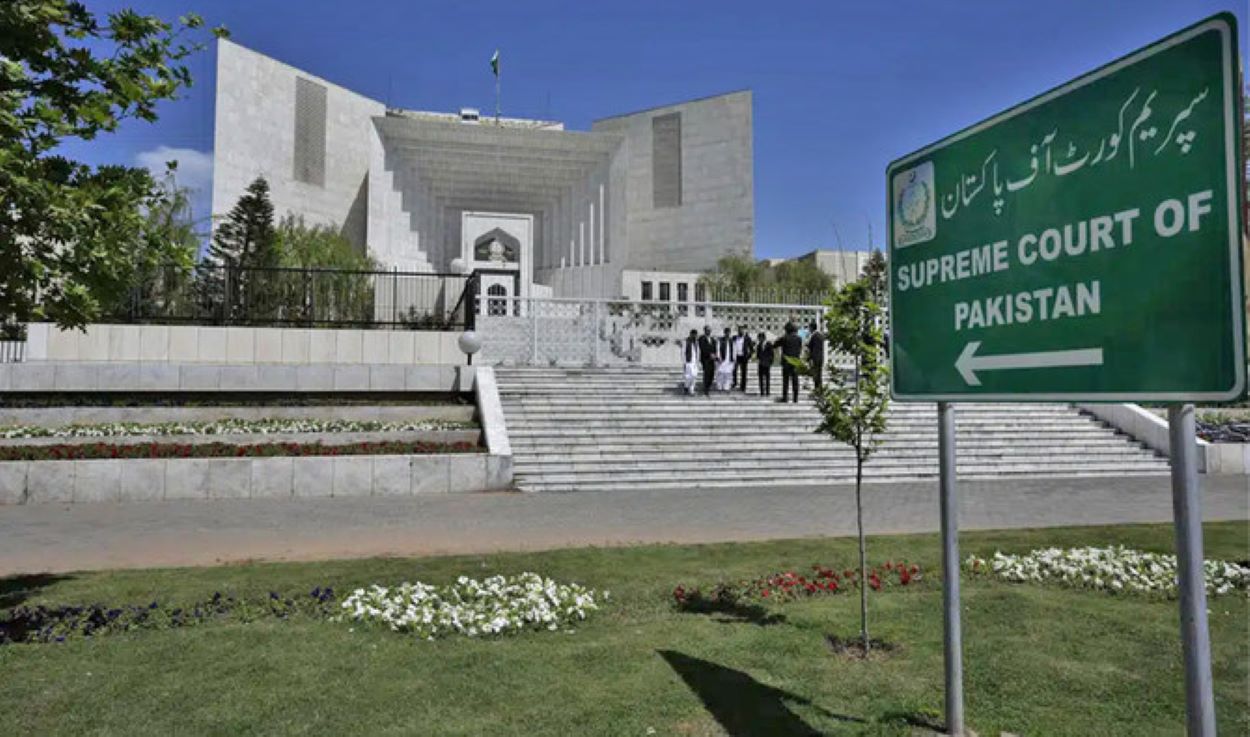On Tuesday, Supreme Court Justice Muhammad Ali Mazhar clarified that civilians would not face military trials merely for being near an army checkpoint. However, a military trial could be applicable if they commit an offence under the Army Act.
During a constitutional bench hearing concerning appeals against civilian trials in military courts. It addressed Justice Musarrat Hilali’s concerns about extending powers to try civilians under the Army Act.
During the hearings, Khawaja Haris, speaking for the Ministry of Defence, noted that the Supreme Court had previously allowed civilians to face court-martials under specific conditions. Justice Mandokhail then expressed constitutional concerns about whether the Ministry of Defence could act as both accuser and judge, emphasizing that the Constitution prohibits executive bodies from performing judicial functions.
Haris argued that the Army Act applies to military personnel and civilians in specific situations. However, Justice Jamal questioned whether Article 8(3), which concerns military discipline, could govern criminal matters. Haris agreed that members of the Pakistan Armed Forces are citizens just like anyone else.
Read: International Community Reacts on Pakistan’s Military Courts Convict Civilians
The constitutional bench sought clarity on the constitutionality of extending military jurisdiction to civilians. Justice Mandokhail also questioned if joining the armed forces stripped individuals of fundamental rights, noting that the Army Act’s purpose is to maintain military discipline, not to restrict civilian rights.
After the hearing, senior journalist Hafeezullah Niazi, the father of a convicted civilian, raised concerns about his son’s treatment in Lahore jail following a military court sentencing. He pointed out that the jail authorities did not treat his son according to the jail manual. Justice Hilali responded that the Supreme Court had instructed authorities to adhere to the jail manual and accused the Punjab and federal governments of ignoring these court orders.
Justice Mazhar observed that the individuals in question were not undergoing trial but had already received sentences ranging from two to ten years. However, he also noted that the authorities had not provided detailed reasons for these sentences.
The court then requested reports from the Punjab government on the treatment of convicts transferred from military courts, emphasizing the need for transparency and strict adherence to the jail manual.
Justice Ameenuddin, leading the constitutional bench, directed the Punjab government to address Niazi’s complaints and ensure compliance with all legal protocols. The court adjourned the next session for Wednesday when the defence ministry’s lawyer will continue his arguments.






